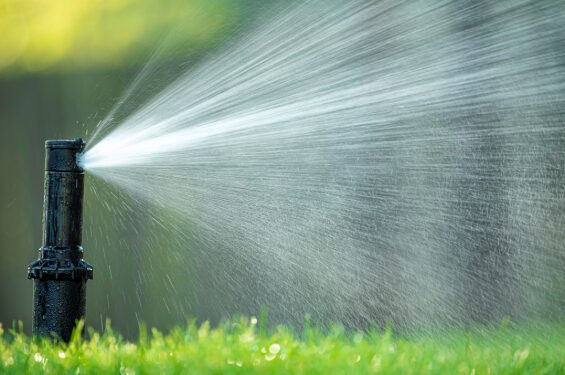Figuring out how to lower electric bills in the summer can be difficult, especially when temperatures are at their hottest. Luckily, there are some steps you can take to save on your electricity bill during the summer months. Try these energy-saving tips so you can focus more on the pleasures of summer.
1. Be smart about peak-time summer utility rates
Plan to run your washer, dryer and dishwasher before 11 a.m. or after 7 p.m. to avoid peak usage times and potentially higher rates. Utility companies often raise gas and electricity rates during the hottest time of the day, according to Energy Upgrade California. You can still load the dishwasher after meals, but waiting a bit to run it can help lower summer electric bills.
2. Look for the Energy Star symbol
Planning to replace your washer, dryer or refrigerator? Shop with energy savings in mind. The U.S. government’s Energy Star program certifies products that meet strict energy-saving specifications. According to Energy Star, washers built before 2003 are significantly less efficient than newer models. Energy Star washing machines use about 25% less energy and 40% less water compared with regular washers. Similar money and energy savings can be found in newer dryers, refrigerators and other appliances that are Energy Star-certified.
3. Use the grill instead of the oven
Running your oven on hot days makes your air conditioner run more to keep the house cool. Firing up the backyard grill for a barbecue instead can help you save on your electric bills in the summer.
4. Turn on your ceiling fan
Install ceiling fans, which can help everyone in the room feel cooler without the need to run the A/C as much – or at all. While the fans don’t actually lower the temperature in the room, they create a wind-chill effect and make you feel cooler by accelerating the evaporation of perspiration on the skin. Another summer energy-saving tip: Ceiling fans are of no use when no one is in the room, so turn them off when you leave.
5. Insulate your home
Heating and cooling account for 50% to 70% of the energy used in the average American home, according to the U.S. Department of Energy (DOE). Reducing the energy spent on cooling by improving insulation is a great way to lower your summer electric bills. Newer homes generally are better insulated than older, unimproved homes because building energy codes have become progressively stricter over the years, says the DOE. If you have an older home, consider adding better insulation. Unless your newer home was constructed with special attention to energy efficiency, your utility bills will still probably benefit from improving your home’s insulation.
6. Check for air conditioner efficiency
The DOE recommends having a professional check and clean your air conditioner (and your heater) once a year. If the unit is more than 15 years old, you may want to consider replacing it with a newer, more energy-efficient unit. A new system can greatly reduce your energy costs, says the DOE, especially if the existing equipment is in poor condition. On your current system, check your ductwork for dirt streaks, especially near seams. These indicate air leaks, and they should be sealed with a duct mastic sealant. Keep yard debris away from the outside compressor of your air-conditioning unit and keep nearby bushes trimmed.
7. Close the drapes and blinds to reduce heat gain
Keep draperies and blinds closed on the sunny side of the house. Adding awnings can help, too. Looking for a longer-term solution that will add to the beauty of your property? Plant trees. “This Old House” recommends particular trees for fast-growing (1½ to 2 feet per year) shade options.
Once you finish using these summer energy-saving tips for your home, check out these summer heat safety tips to help protect yourself and your family.



